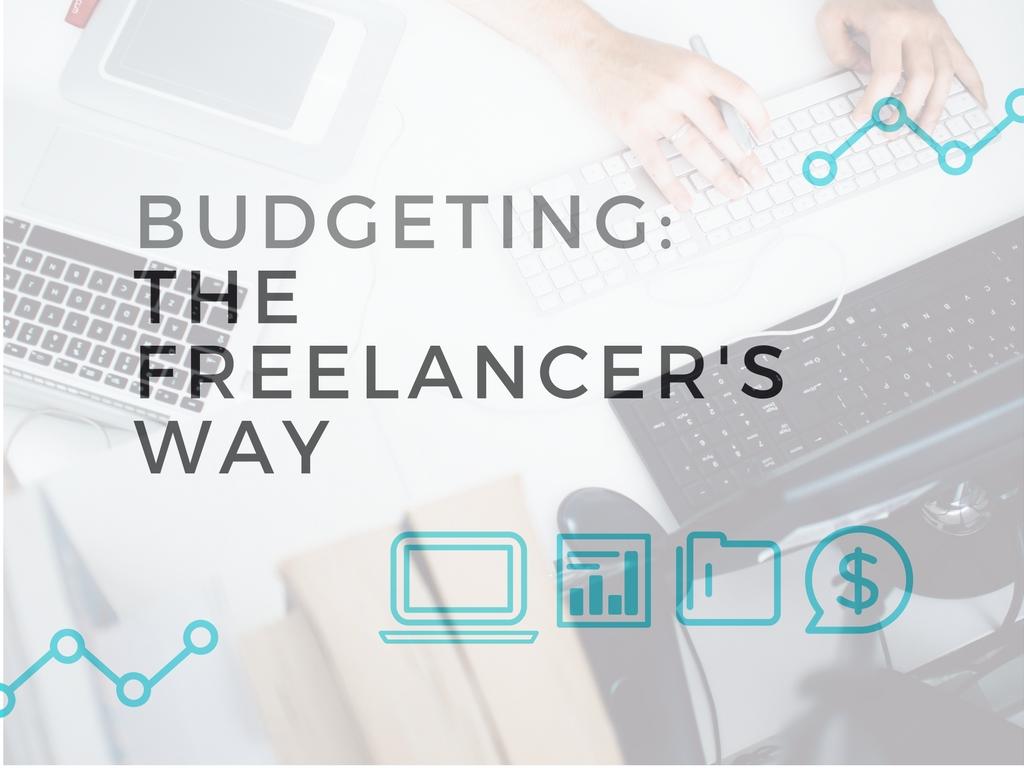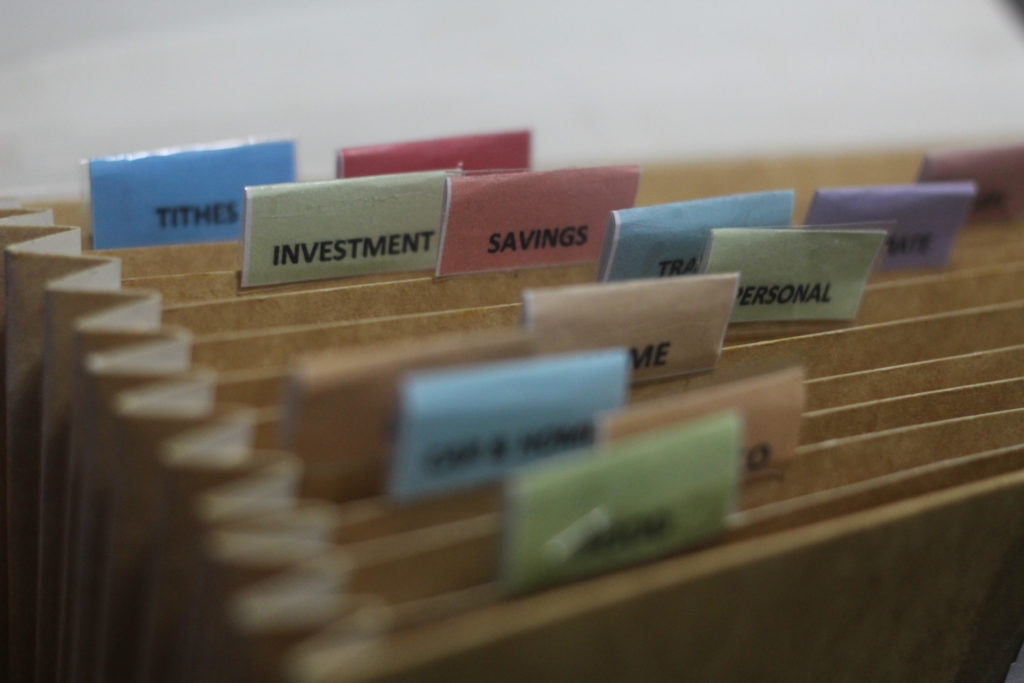“Freelancers” when people hears about this job title, the first thing that comes to our mind is “freedom”.
Being freelancers and self-employed allowed our family to always be together, as in, everyday, have a vacation on a weekday (mas mura ang accommodation rates) , play with our child while having a lunch break from work which is just few inches away from our sofa haha!
But included in the package of being freelancers is the “inconsistent income flow” or should I say “irregular income” though some freelancers are hired as full time employee receiving a fix monthly salary, there are also freelancers like us, who get paid “project-based”.
Being in creative line, most artist and creative entrepreneurs work freelance and get paid project-based.
Before, we don’t feel like its a money issue, (we’ve been freelancers and small business owners for 8 years now) until we started a family, pay bills and save for our future.
Now I am not a financial guru. I just want to share what works on our family because guys, I know exactly how you feel, especially wives of freelancers, if you’re the one who budgets your family income, I know girl gaano sya ka-challenging i-manage.
BUDGETING THE FREELANCER WAY:
- Know how much are you spending
“Saan nanaman napunta ang income ko?” Stop wonderin’ where it went by recording every single peso you spend, use a notebook or mobile apps that records expenses and catergorize it at the end of the month – Utilities, Food, Transportation, Personal Expense and more..
Some even collect their receipts in a shoe box and record everything at the end of the month, but some expenses doesn’t have receipts so you might miss a thing using this method. In our family, we’re surprised 2 years ago how eating out drained our budget, even a simple trip to convenience store, it can sum up to Php 500/month.
- Check if your income meets your expenses
Record also how much you earn from the entire month, since most of us get paid weekly basis, record every earnings as well, and check if it meets your Number 1 “Expenses” If it doesn’t meet your expenses, its time for a temporary downgrade of lifestyle until you’re earning more than enough your expenses as they say, “Live below your means”. Then set a target income for the entire month, since we do not have fix salaries, we should have a goal income for each month.
- Use a budgeting system
After determining how much your average expenses and average income are (by observing your financial flow for 3-6 months you can get your average expense & income), it’s time to start a budgeting system, it can be an envelope system which you allocate your expenses (you may check out the system we’re using here) ,some use different bank accounts to manage their finances – no cash out but debit system
The goal of budgeting is letting you be the manager of your money instead of being managed by your money.
Every time you receive your pay, name that earning and control where it should go. There are months that like us, you will fail to stick on the budget, don’t quit and say “magulo nanaman this month, wag nalang nga magbudgeting na yan!” remember, financial freedom is a journey not a one time event, kaya natin ito! keep going!
- Start an emergency fund
What’s your greatest fear as freelancer or small business owner? I’m sure like us, that’s when you face lean season. In almost 8 years of being a small biz owner and my husband as a freelancer, in a year, there are month/s of “low earnings”
So the key is really to save for those lean seasons by having an emergency fund -an emergency fund is atleast 3 months of your average earnings, to cover life’s “emergencies” like health issues, work goes off-season, and other unexpected expenses. As most financial experts advised, it should be withdrawable anytime, we cannot use our emergency fund to invest in stock market, because what if the market is low? and you need the money right that very day. It should be in a savings account.
- Have an “anti-salary shock” fund
This works in our family, since our main problem is the inconsistent income flow, we’ve tried saving for an “anti-salary shock” fund, this is where we get fund during months that we do not have enough income from our project-based gigs, so we will not drain our savings or withdraw investments and get from emergency fund to cover the month’s expenses. We started with 1 month of equivalent earnings. That’s where we get additional funding for our month’s expenses because most of our work gets paid after a month of production.
- Proper Priorities
As Mr.Francis Kong said, “Check a person’s check book and his schedule, you’ll know his priorities in life”
Being freelancers, it may be a bit challenging for us to manage our finances, but keeping our priorities in life clear will save us from a lot of financial stress, giving back to God is our number 1 priority, saving for our future or as financial advisors call it “pay yourself first” by investing in Insurance and Investment plans is second, then followed by our needs like food, shelter and so on… During the low project season, we should prioritize our fix expenses and adjust on areas that are controllable like food, electricity recreation and transportation expense.
Being freelancers, helped us trust God’s grace in our life, we do not have a regular income flow, we do not have a big business, but His Grace is sufficient everyday. All we have to do is to be faithful stewards of what He has entrusted us.
As a freelancer, do you also have any money management hacks? Feel free to share it with us.











I need this! Hubby is more effective in managing our finances so everytime I earned money from blogging and makeup gig, I let him keep it. I love the idea of “anti-salary shock”, looks so effective!
As a freelancer, too, I love what you shared here. And I’ll be sharing it on my page, too! Marami rin kasi akong kilalang freelancers and this would be a big help. An eye-opener. 🙂 We’re already on our way with building our emergency fund. Sana mabuo na namin by next year. 🙂
I love handling our finances. Been trained by my mom to do budgeting at an early age. Good thing that when I resigned, I was able to save and use the money for some of our needs. Husband, too, has a stable job. Thank God, thus we can keep the savings and use his salary for our needs.
I agree with getting an insurance a priority. It’s hard to be a freelancer but if you know how to handle your income properly then everything will fall into it’s proper place.
Sobrang hirap talaga magbudget pag freelance, that’s why my husband and I went for full time work with stable cash inflow. It was just easier to pay debts and plan our budget that way. As a freelancer, though, we budgeted the money from sources that are more consistent.
I haven’t been really good at budgeting. I always had a loose budget and play around with it. Though this year had been tough and made me realize a lot of things. I have been keeping track of my own expenses by recording them daily or as I spend (I used to have an app but I was not able to consistently use it so I came up with my own spreadsheet with all the graphs and what-nots 😀 ). So far, I have been seeing the trend of where my money goes which has been a big help in making adjustments in my spending habits. I think I need to be a lot more consistent in doing this and make sure I have different accounts for different savings just to have a safety net if and when I decide to leave the corporate world and be a freelancer someday (I’ve been toying with this idea for quite a while now)… thanks for sharing these tips. Such a big help. 🙂
Yes to everything you mentioned about freelancing! I worked freelance full-time from the time my son was born (2012) to early 2015. I had to make sure to save up for the “lean” months because a freelancer’s salary is not guaranteed. Funny thing is, I had more savings when I was a freelancer than now when I have a regular income gaaah.
Thanks for this informative post, Gracie! Helpful hindi lang sa freelancers. God bless!
Everything is true! I use the envelope budgeting system and it saves me a lot from unnecessary expenses cause i already put a name to every peso..
Yes that’s the problem with freelancing, the payment is not consistent and you don’t get paid upfront it’s usually well after you’ve delivered what was asked.
Nice tips! This is the first time I’ve heard about anti-salary shock. Sounds like emergency funds pero with a twist. hehe
Kea I also admire freelancers! And naiinggit din ako sa kanila because they can work at home and be with their kids. But as you mention nga mahirap din talaga kapag hindi continuous ang dating ng salary. So budgeting and saving is really a must.
Oh I love this! Very helpful not just for freelancer’s but it’s applicable to everyone. I always set our priorities and also we have our emergency fund. If you are not good in budgeting kasi laging short, pag short of course no choice uutang. Whew! hard!
Great tips! I have been wanting to quit from the corp world soon so I’m keeping these in mind.
I am not as financially-savvy as you are, but I try to save up most of my earnings so we can have something to use in times of emergencies. One of the most effective financial hack I can say is effective is doing away with most of the temptations online {read: online shopping}. While trying to save up, I cancelled most of my subscriptions to online shopping sites and stuck with those that are only essentials. Spending less is also a wise financial move, so I try to focus on buying only what is essential as opposed to buying anything I want!
I sure hope I can put to practice some of the tips you mentioned here next year as I continue to save up for the future, and hopefully, explore investing and the stock market. Thank you for the inspiration!
I agree, having an emergency fund is a necessity, especially when a member of the family gets sick. Having one gives you peace of mind where the only thing you need to worry about is caring for that sick family member and not looking for money everywhere to pay for hospital expenses.
An “anti-salary shock” fund is an excellent idea. I will definitely include this in my 2017 budget. As a freelancer I need to create my own safety net.
Great tips! The unsteady income really is tricky. I hope to be financially savvy this year and manage my finances well.